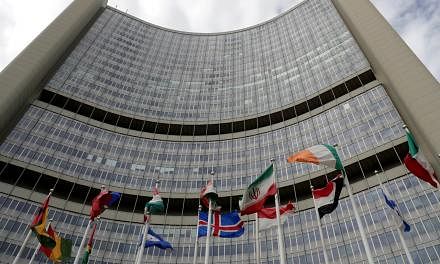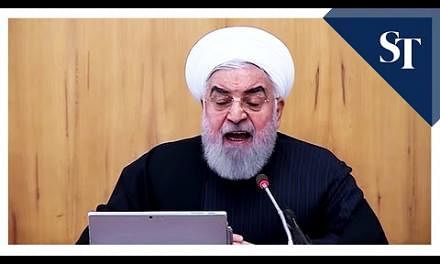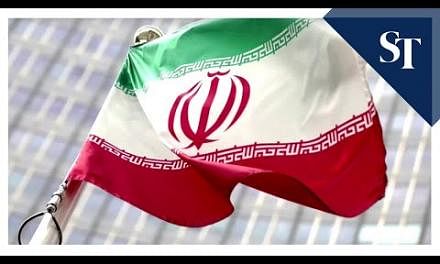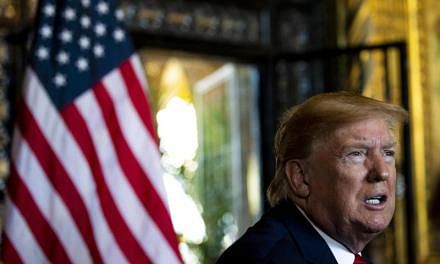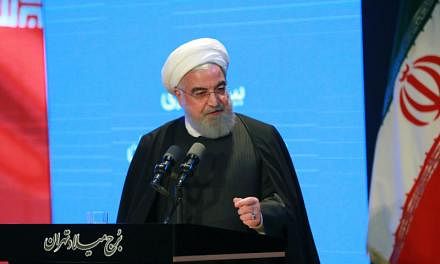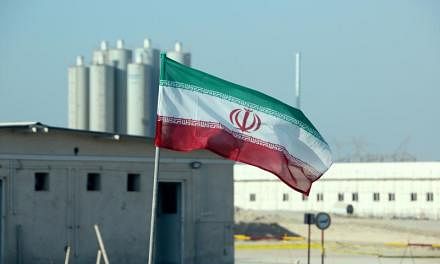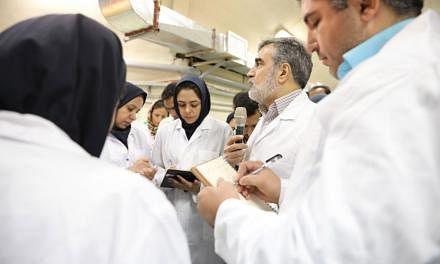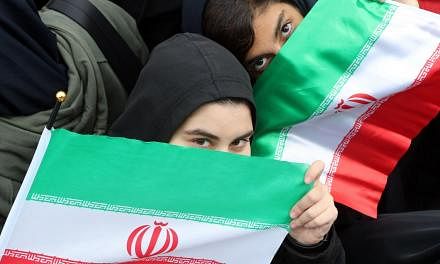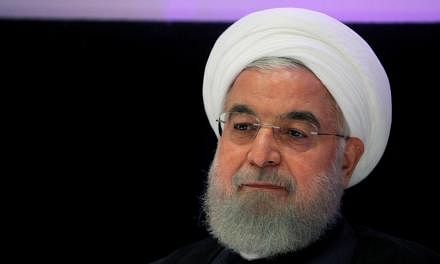VIENNA (BLOOMBERG) - Iran is set to breach the 2015 nuclear deal for the first time on Thursday (June 27), piling pressure on European powers attempting to salvage it from crippling US sanctions and avert a slide towards war.
Iran's atomic energy agency has said the country will probably exceed a cap on stockpiles of low-grade uranium on Thursday, and could early next month raise enrichment purity beyond a 3.67 per cent limit put in place to prevent Iran from making weapons-grade material.
While Europe, China, and Russia have stuck with the so-called Joint Comprehensive Plan of Action a year after the Trump administration walked away, an Iranian violation would make it harder for them to stand up to US pressure.
The UK, France and Germany will be loath to introduce their own sanctions, yet they could decide to report a breach to the deal's dispute mechanism, ratcheting up tensions with an increasingly isolated Teheran.
"If Iran's leadership comes to the conclusion that it has no choice other than talking to Washington, it will do so only after it has resuscitated its leverage," said Ali Vaez, a director at the International Crisis Group. "This means that the path to new negotiations passes through another perilous nuclear stand-off."
Tensions in the Gulf spiked after the US stopped granting waivers to buyers of Iranian oil in early May, tightening sanctions slapped on the Islamic Republic after President Donald Trump pulled the US out of the accord a year ago. Trump says he wants to negotiate a new deal that would also restrict Iran's missile programmes and support for armed proxies around the region.
Iran denies it's seeking to develop a nuclear weapon and has refused to renegotiate while under sanctions. Its downing of an American drone last week in disputed circumstances brought the Middle East to the cusp of a new war, with Trump only calling off planned retaliatory airstrikes minutes before the action was set to start. Iran and Russia say the unmanned aircraft had entered Iranian airspace, something the US rejects.
Attacks on shipping in the Gulf - which the US has blamed on Iran - and a steady exchange of threats and insults have convulsed the region and sent oil prices soaring.
After Trump on Monday sanctioned Iranian Supreme Leader Ayatollah Ali Khamenei and top military officials, Iran declared the path to a diplomatic solution closed.
Iran eliminated some 97 per cent of its enriched uranium to comply with the nuclear agreement. It previously had enough material to build more than a dozen bombs. While Iran has always said its programme is civilian, world powers pursued the deal because they doubted that claim.
After labouring under US sanctions for almost year, Iran threatened on May 8 to gradually withdraw from the accord unless the remaining parties throw it an economic lifeline within 60 days. As that deadline neared, European nations said on Wednesday they are finalising a financial mechanism, known as Instex, to protect their trade with Iran, which has already drawn the threat of US penalties.
Teheran vowed to no longer comply with a 300kg cap on the storage of enriched uranium and a 130-ton limit on stocks of heavy water after the US revoked key waivers that had allowed the Iranians to send excess heavy water to Oman and ship out surplus enriched uranium in exchange for natural, or yellowcake, uranium.
Five weeks later, officials vowed to increase the rate of enrichment. Barring policy change or mechanical breakdown, Iran could accumulate the volume of material needed to build a weapon by the end of the year.
The Arms Control Association, a Washington non-profit, estimates Iran would need about 1,050kg of uranium enriched to 3.67 per cent to build one bomb. The material would then need to undergo further enrichment. The nuclear deal was designed to prevent Iran from breaking out and constructing a weapon within a year.
International Atomic Energy Agency monitors said last month that Iran has met its obligations. Diplomats from the countries remaining in the accord had said they would meet on Friday to discuss "Iran's announcement regarding the implementation of its nuclear commitments".
Overstepping stockpile limits could result in an extraordinary meeting of the IAEA's board and the start of a process that might lead to the reimposition of broader United Nations sanctions.
Iran's in no mood to back down. In Moscow on Wednesday, Deputy Foreign Minister Seyed Sajjadpour told reporters there can't be dialogue with the US while "unjust" sanctions remain.
"As we say in Persian, it was not my aunt who withdrew from JCPOA, it was the United States that withdrew," he said. "It is you who should change your behaviour, your mentality and your approach, to see a different context," Sajjadpour said of the US.

